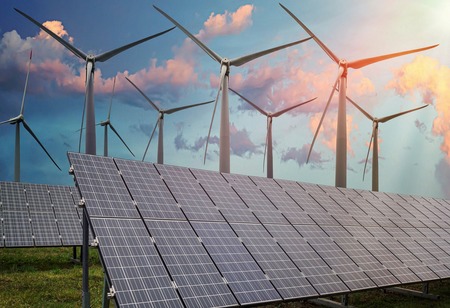A top American senator has initiated legislation to boost cooperation between India and the US in the areas of clean energy and climate change, emphasizing that he witnessed firsthand the positive results that come when the two nations work as a team to tackle common challenges.
The Prioritizing Clean Energy and Climate Cooperation with India Act of 2021 introduced by Senator Robert Menendez, Chairman of the Senate Foreign Relations Committee, comes a day after the United States Special Presidential Envoy for Climate John Kerry launched the Climate Action and Finance Mobilization Dialogue in New Delhi.
Given the shared threat of climate change and India's growing need for electricity, there is a strong case to be made for strengthening the US-India clean energy partnership. In that vein, I am introducing this legislation having witnessed firsthand the positive results that come when our nations work as a team to tackle common challenges, he said.
By establishing the US-India Climate and Clean Energy Partnership, we are laying the groundwork for successful joint venture between not only the US and Indian governments, but also our universities and private segments. I am proud to lead this effort to further strengthen our relationship with India, Menendez said.
The legislation among other things establishes the United States-India Climate and Clean Energy Partnership (CCEP) as the main forum for cooperation between the US and India on clean energy technologies and energy transmission.
CCEP activities include promoting joint research and development on clean energy technologies, encouraging US private investment in the Indian clean energy market, and supporting initiatives to develop novel renewable energy generation capacity in India.
The Act also promotes US-India cooperation on
climate resilience and risk reduction, a media release said.
Observing that Prime Minister Narendra Modi has prioritised enhancing citizen access to electricity and electrifying every household in India, the legislation asserts that India, in contrast to China, is demonstrating that climate action is a priority through concrete steps consisting of a climate plan compatible with the goal of limiting global average temperature rise below two degrees Celsius.
India's unconditional emissions target, as outlined in the Intended Nationally Determined Contribution of India to the Paris Agreement, aims to lessen emissions intensity of gross domestic product by 33 per cent to 35 per cent below 2005 levels by 2030, it said.
Noting that in 2019, Prime Minister Modi announced an ambitious domestic target of installing 450 gigawatts of renewable energy capacity by 2030, the legislation said India was amongst the top five clean energy producers globally.
Installed electricity capacity from renewables in India grew by 144 per cent from 2014 to 2020, and between 2014 and 2019 there was approximately USD 42 billion in investment in the renewable energy segment in India.
The legislation follows a Congressional delegation coming to India in the fall of 2019, during which Menendez engaged with India's Minister of New and Renewable Energy and Indian business leaders to argue how the US and India can address the threat of climate change and deepen cooperation on clean energy production.
In addition to establishing groundbreaking new programmes, this bill would also serve to bolster the Biden administration's US-India Climate and Clean Energy Agenda 2030 Partnership, which aims to elevate bilateral cooperation on strong climate action and support the achievement of India's ambitious climate targets, the release said.
The legislation promotes partnerships between US and Indian universities and government research laboratories on the research, development, and application of clean energy technologies. It also promotes sharing of intellectual property between US and Indian private sector entities for renewable energy technology, air conditioning technology, refrigeration systems technology, and other advanced energy technologies.
Encouraging US private investment in the Indian clean energy technology market, the legislation supports the provision of technical assistance and expertise on electrical grid and energy efficiency improvements in India. It supports initiatives to develop new renewable energy generation capacity in India and needs the administration to submit a multi-year strategy to Congress for implementing the CCEP.
The legislation commissions a report on opportunities for States of the United States and States of India to cooperate in advancing clean energy solutions. It also sets advancing climate risk reduction and resilience capacities as a priority for the US's diplomatic, security, and development work in India.
